The Importance of Skincare in Makeup Artistry



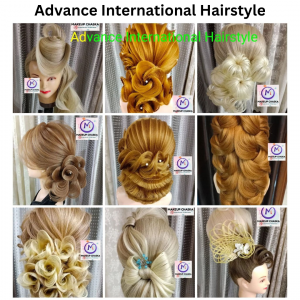
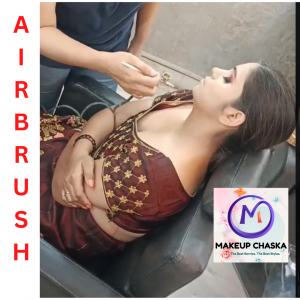
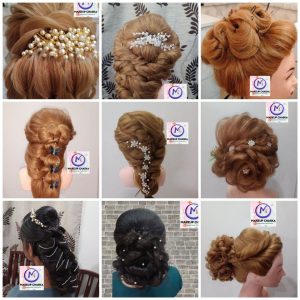
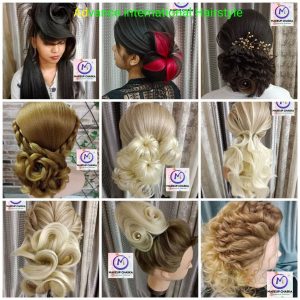


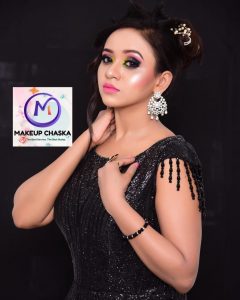
The Importance of Skincare in Makeup Artistry
The importance of skincare in makeup artistry cannot be overstated. A makeup artist’s role is to enhance the natural beauty of their clients, but that cannot be achieved without taking into account the health and condition of their skin. Skincare should be an integral part of a makeup artist’s routine as it lays the foundation for any makeup look.
Good skin equals good makeup. When a client’s skin is in good condition, it allows the makeup to blend seamlessly and creates a flawless finish. On the other hand, if the skin is dry, oily, or has blemishes, it can make the makeup look cakey, patchy, or highlight any imperfections. In order to achieve a flawless look, it is essential for makeup artists to understand their clients’ skin types and concerns, and to provide a skincare routine that addresses those concerns.
Additionally, skincare also protects the skin from harmful chemicals and pollutants that are commonly found in makeup products. It is essential for a makeup artist to use products that are gentle and safe for their clients’ skin. This not only helps to prevent skin irritation but also helps to prolong the longevity of the makeup.
A good skincare routine starts with cleansing. Cleansing removes dirt, oil, and makeup residue, and prepares the skin for the next step in the skincare routine. It is important to choose a gentle cleanser that will not strip the skin of its natural oils and will not cause any irritation.
Exfoliating the skin is another important step in a skincare routine. Exfoliation helps to remove dead skin cells, unclog pores, and reveal brighter, smoother skin. This step is especially important for clients with dry or dull skin, as it helps to rejuvenate the skin and promote a healthy glow.
Moisturizing is a critical step in a skincare routine. It is essential for keeping the skin hydrated, preventing dryness and flakiness, and maintaining the skin’s natural barrier. A good moisturizer will help to improve the skin’s texture and make it smoother and more supple.
Sun protection is also an essential part of a skincare routine. Exposure to the sun’s harmful UV rays can cause premature aging, hyperpigmentation, and skin damage. It is important for a makeup artist to educate their clients about the importance of sun protection and to recommend products that contain SPF.
In conclusion, skincare plays a crucial role in makeup artistry. A good skincare routine lays the foundation for any makeup look, and ensures that the skin is healthy, hydrated, and protected. It is essential for makeup artists to understand their clients’ skin types and concerns, and to provide a skincare routine that addresses those concerns. By doing so, they can achieve a flawless makeup look that enhances the natural beauty of their clients and protects their skin from harm.
The Importance of Skincare in Makeup Artistry
Skincare and makeup go hand in hand. A good skincare routine lays the foundation for any makeup look and is crucial for achieving a flawless finish. As a makeup artist, it is important to understand the importance of skincare in your practice and to educate your clients about its benefits. In this article, we will explore the different aspects of skincare in makeup artistry, and why it is so important.
The Basics of Skincare
Before we dive into the importance of skincare in makeup artistry, it’s essential to understand the basics of skincare. A good skincare routine should consist of four main steps: cleansing, exfoliating, moisturizing, and protecting.
Cleansing is the first step in a skincare routine and is critical for removing dirt, oil, and makeup residue from the skin. It is important to choose a gentle cleanser that will not strip the skin of its natural oils and will not cause any irritation. Cleansing prepares the skin for the next step in the skincare routine and helps to maintain the skin’s natural pH balance.
Exfoliating is step in a skincare routine. This step helps to remove dead skin cells, unclog pores, and reveal brighter, smoother skin. It is particularly important for clients with dry or dull skin, as it helps to rejuvenate the skin and promote a healthy glow. Exfoliating should be done no more than two to three times a week, depending on skin type.
Moisturizing is a critical step in a skincare routine, as it is essential for keeping the skin hydrated and preventing dryness and flakiness. A good moisturizer will help to improve the skin’s texture and make it smoother and more supple. Moisturizing should be done both in the morning and at night to ensure that the skin remains hydrated throughout the day and night.
Protecting is the final step in a skincare routine, and it is essential for protecting the skin from the sun’s harmful UV rays. Sun exposure can cause premature aging, hyperpigmentation, and skin damage. It is important to educate your clients about the importance of sun protection and to recommend products that contain SPF.
The Benefits of Skincare in Makeup Artistry
Good skin equals good makeup. When a client’s skin is in good condition, it allows the makeup to blend seamlessly and creates a flawless finish. On the other hand, if the skin is dry, oily, or has blemishes, it can make the makeup look cakey, patchy, or highlight any imperfections. In order to achieve a flawless look, it is essential for makeup artists to understand their clients’ skin types and concerns, and to provide a skincare routine that addresses those concerns.
Skincare also protects the skin from harmful chemicals and pollutants that are commonly found in makeup products. It is essential for a makeup artist to use products that are gentle and safe for their clients’ skin. This not only helps to prevent skin irritation but also helps to prolong the longevity of the makeup.
By incorporating a good skincare routine into your practice, you can improve the overall health of your clients’ skin and enhance the natural beauty of their skin. A well-maintained skincare routine can help to prevent skin issues such as acne, wrinkles, and hyperpigmentation, and can help to improve the skin’s texture and tone.
Educating Your Clients about Skincare
The Importance of Skincare in Makeup Artistry
As a makeup artist, it is important to educate your clients about the benefits of good skincare and the impact it has on the overall look of their makeup. This education should start before the makeup application process and continue throughout the relationship with your client.
Some key points to educate your clients on include:
- The importance of cleansing: Explain the importance of removing dirt, oil, and makeup residue from the skin before applying makeup. Highlight the benefits of using a gentle cleanser and the impact it has on the skin’s natural pH balance.
- The benefits of exfoliation: Explain how exfoliating helps to remove dead skin cells, unclog pores, and promote a healthy glow. Emphasize the importance of not over-exfoliating and the impact it can have on the skin.
- The importance of hydration: Discuss the importance of keeping the skin hydrated and how moisturizing helps to prevent dryness and flakiness. Highlight the importance of moisturizing both in the morning and at night.
- The importance of sun protection: Educate your clients about the harmful effects of sun exposure and the importance of using products with SPF. Explain how sun protection helps to prevent premature aging, hyperpigmentation, and skin damage.
It is also important to educate your clients on the ingredients in their skincare products and the impact they have on the skin. Some ingredients, such as retinol and glycolic acid, can be harsh and cause irritation, so it is essential to recommend products that are gentle and suitable for their skin type.
Incorporating Skincare into Your Makeup Practice
Incorporating skincare into your makeup practice is simple and can be done in a few ways. You can start by offering a consultation with your clients before the makeup application process. During this consultation, you can assess their skin type and concerns, and recommend a customized skincare routine that addresses their needs.
You can also offer skincare products in your makeup kit and educate your clients on their benefits. This can include cleansing products, exfoliating products, moisturizers, and sun protection products. By offering skincare products, you can provide your clients with a complete solution for their beauty needs.
Another way to incorporate skincare into your makeup practice is by offering skincare treatments, such as facials or microdermabrasion, to your clients. These treatments can help to improve the overall health of your clients’ skin and enhance the natural beauty of their skin, making it easier for you to apply makeup and achieve a flawless finish.
In conclusion, the importance of skincare in makeup artistry cannot be overstated. By incorporating a good skincare routine into your practice, you can improve the overall health of your clients’ skin, enhance the natural beauty of their skin, and achieve a flawless makeup look. Education is key, so be sure to educate your clients about the benefits of skincare and the impact it has on the overall look of their makeup.
The Importance of Skincare in Makeup Artistry
Proper skincare can help to enhance the natural beauty of the skin, improve its texture and tone, and provide a smoother canvas for makeup application. By promoting good skincare habits, you can help your clients achieve healthier, more radiant skin and ensure that their makeup looks its best for longer.
It is important to understand that skincare is a crucial part of the makeup process and should not be overlooked or dismissed. Whether your clients have dry, oily, or combination skin, there are products and routines available that can help them achieve their desired results. As a makeup artist, it is your responsibility to educate your clients on the best products and routines for their skin type, and to provide them with the tools they need to achieve and maintain healthy, radiant skin.
Incorporating skincare into your makeup practice can also help to differentiate you from other makeup artists and make you stand out in the industry. By offering customized skincare solutions to your clients, you can show them that you are not just a makeup artist, but also a skincare expert who is dedicated to helping them achieve their beauty goals.
In addition to educating your clients about the importance of skincare, it is also important to lead by example. By taking care of your own skin and incorporating good skincare habits into your own routine, you can demonstrate the value of good skincare to your clients and show them that it is a necessary part of achieving and maintaining healthy, radiant skin.
In conclusion, as a makeup artist, it is crucial to understand the importance of skincare in achieving a flawless makeup look. By promoting good skincare habits and incorporating skincare into your makeup practice, you can provide your clients with the tools they need to achieve and maintain healthy, radiant skin, and help set yourself apart as a skincare expert in the industry.
The Importance of Skincare in Makeup Artistry
Understanding Your Client’s Skin Type
In order to provide the best possible skincare advice and services, it’s important to understand your client’s skin type. Some common skin types include:
Normal Skin: Normal skin is well-balanced and doesn’t experience frequent breakouts or dryness.
Oily Skin: Oily skin is characterized by excess oil production, which can lead to breakouts and a shiny appearance.
Dry Skin: Dry skin is characterized by a lack of moisture, which can lead to flakiness, itching, and redness.
Combination Skin: Combination skin is a mixture of different skin types, with some areas of the face being oily and others being dry.
Sensitive Skin: Delicate skin is effectively disturbed and inclined to redness, tingling, and breakouts.
Once you’ve determined your client’s skin type, you can make recommendations for skincare products and treatments that will best meet their needs.
XV. Skincare Products for Makeup Artists
There are a wide variety of skincare products available for makeup artists to use with their clients. Some of the most popular types of skincare products include:
Cleansers: Cleansers are used to remove dirt, oil, and impurities from the skin.
Moisturizers: Moisturizers are used to hydrate and nourish the skin.
Primers: Primers are used to create a smooth and even canvas for makeup application.
Sunscreen: Sunscreen is utilized to safeguard the skin from the destructive impacts of UV beams..
Anti-Aging Products: Anti-aging products are used to reduce the appearance of fine lines and wrinkles and improve skin elasticity.
When choosing skincare products for your clients, be sure to select products that are suitable for their skin type and are free of harmful ingredients.
XVI. The Benefits of Professional Skincare Services
In addition to using skincare products, there are also many professional skincare services that you can offer your clients. These services can help to improve the health and appearance of your client’s skin and can provide long-term benefits. Some of the most popular skincare services include:
Facials: Facials are a great way to cleanse and rejuvenate the skin. They can help to improve skin texture, reduce the appearance of fine lines and wrinkles, and boost skin radiance.
Microdermabrasion: Microdermabrasion is a skin resurfacing treatment that can help to improve skin texture and reduce the appearance of fine lines and wrinkles.
Chemical Peels: Chemical peels are a type of exfoliating treatment that can help to improve skin texture, reduce the appearance of fine lines and wrinkles, and even out skin tone.
Laser Resurfacing: Laser resurfacing is a type of skin rejuvenation treatment that can help to improve skin texture, reduce the appearance of fine lines and wrinkles, and even out skin tone.
XVII. Conclusion
In conclusion, skincare is an important part of the makeup artistry process. Understanding your client’s skin type, using the right skincare products, and offering professional skincare services can help you to provide your clients with healthy and radiant skin. With the right approach, you can help your clients to look and feel their best every day!
